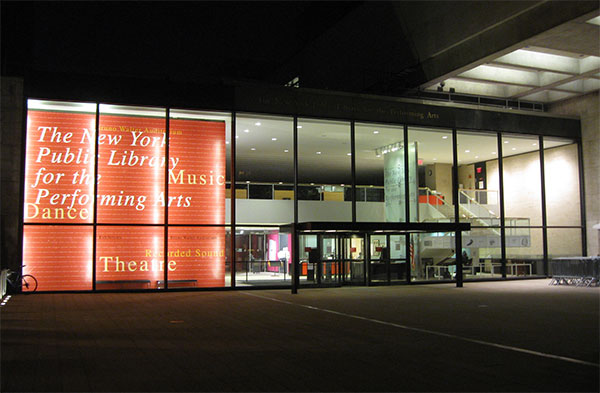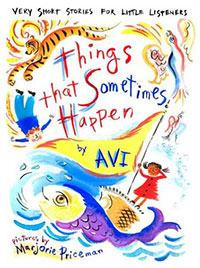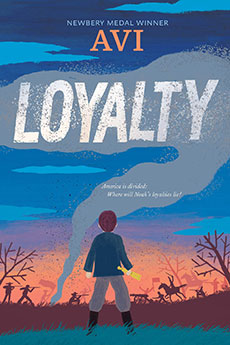Way back in the 1960’s, I was working at trying to become a playwright, when I became a librarian. It happened this way.
My wife (at that time) was seriously ill. In those days, living in NYC, the two of us hobbled together a simple and somewhat precarious living. She was a modern dancer. Me, I was any number of things, carpenter, short-order cook, etc., the usual jobs one did to stay alive and learn to write. I didn’t do any of them well, which meant I had to find new jobs all the time. My wife earned more income than I.
But when she became seriously ill, I knew I had to do something steadily, something I could do well, that would sustain us. With just such a hope in mind, I wandered into the main branch of the NY Public Library, the one with the lions on Fifth Avenue. I discovered that the resident Theatre Collection was looking for a lowly clerk, but that in a few years they would be moving to Lincoln Center and expanding their professional staff.

I was offered and took the clerk job, applied to Columbia University’s School of Library Science, and began classes all within a two-week period. I would stay with the NYPL for about ten years, during which time (night school) I became a librarian. Then, with an expanding family—and no longer involved with the theatre—and my wife no longer ill or a dancer—I took the library position of Humanities Reader’s Advisor at what was then called Trenton [NJ] State College.

How did I get the job? I applied. But when I heard nothing I called up and informed them that by sheer chance I was going to be in their neighborhood—which was not true. “Since I will already be there, would you be willing to interview me? No obligation.” They said yes. I got on a train, had an interview, and shortly after got the job.
 Not long after I arrived there, in 1970, I was in the room where new books arrived. Low and behold there was a copy of Things That Sometimes Happen, my first children’s book. That was the first time I saw it.
Not long after I arrived there, in 1970, I was in the room where new books arrived. Low and behold there was a copy of Things That Sometimes Happen, my first children’s book. That was the first time I saw it.
I would stay at that library for fifteen years, during which time I was not just literature and reference librarian but taught many classes in research methods to myriads of students. Of course, I was still writing—weekends and nights.
I also began to write historical fiction, and the library, being a good one, allowed me to do research. By then I knew how to do it.
If one bothers to read the reviews of my historical fiction or the letters that my readers write to me, you will note the constant comments about the many details I put in my books. Reviewers appreciate them. My readers seem to love them.
I came upon those details because of my skills as a research librarian.
I could give countless examples. One of my favorites: when writing City of Orphans which deals in large measure with a Danish immigrant family living in 1890’s New York City, I wanted to reveal the father’s sadness about living far from his European home. To achieve this, I was able to track down a doctoral dissertation which consisted of a volume ohttp://cityf songs composed by Danish immigrants who came to America in the 1890’s. The father sings one of those sad songs in the course of the story.
In one of my Crispin books, Crispin is dashing through an English forest. What was a Medieval English forest like? I found a book that described them.
 In my new book Loyalty, there are many examples of such details. A key part of the book is a prayer the protagonist’s father—an Angelicin pastor—shares with his family. The prayer calls for a blessing on King George. The Sons of Liberty hear that prayer and decide to tar and feather the pastor to teach him a lesson. He is treated with such brutality that he dies. That moment is the starting point for the novel’s plot.
In my new book Loyalty, there are many examples of such details. A key part of the book is a prayer the protagonist’s father—an Angelicin pastor—shares with his family. The prayer calls for a blessing on King George. The Sons of Liberty hear that prayer and decide to tar and feather the pastor to teach him a lesson. He is treated with such brutality that he dies. That moment is the starting point for the novel’s plot.
I had known that in the 18th century it was common for collections of prayers to be written and published by ministers I tracked down one such book, so the prayer in the book is quite correct.
During the siege of Boston, the English army issued—for a while—passes for citizens to get out of Boston. That pass, word for word, will be found in the book.
My hero, Noah, wears a coat. I did my research and found a picture of just such an unusually rare coat, as displayed in a small New England museum. Noah wears it.
I could give many more examples from Loyalty.
My point is, when writing historical fiction, I always want to bring vibrant details to my stories. Being a librarian taught me how to find them.
You’ll see the results in Loyalty.
3 thoughts on “Researching the details”
Hello! I am eager to read the new adventure! I admire your attention to detail and how you use multiple resources to take the reader on an authentic journey through time. And I appreciate how you do not seem to rush the process so that you “write reading” that is beloved by many.
Tarring and feathering was something I learned about a little when i was quite young. I could not imagine the cruelty. My son is an historian. A researcher, too, specifically in the time of the early Republic and also revolving around Thomas Jefferson. It is both interesting but can be exhausting when you are on a quest, but so worth it when your book turns out to be so authentic. Thank you for your amazing work. We go to the College Of NJ to watch The Nutcracker. I know it is not the Trenton campus of Rutgers but in the vicinity. PS I love librarians. I think I could have lived happily as one.
As always, I read about this part of your life enthralled. Your passion for detail and accuracy, partnered with your ability to craft an amazing story, have blessed so many readers!